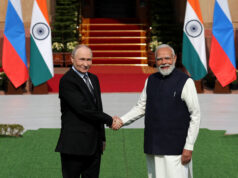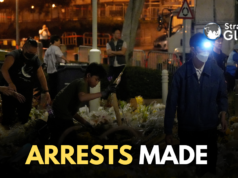
Prime Minister Modi is in Vientiane, the capital of Laos for the Asean-India and East Asia summits … the visit is taking place at a time when China is openly feuding with Asean member Philippines … blocking the movement of its naval vessels to Scarborough Shoal in the South China Sea … and threatening the worst ….
China has also moved a small armada of so-called “fishing fleets” into the Exclusive Economic Zones of every Asean member … but other than the Philippines no Asean member appears willing to address it publicly.
Add to that the civil war raging in Myanmar since the military coup in 2021,with the military junta having lost ground to a gaggle of ethnic militias … but Asean seems unable to resolve it.
Modi has interacted with practically every Asean leader … privately they would have shared their concerns about China and about Myanmar …
Former diplomats with experience of the region, says since Asean’s inception in 1967, it has created complex political structures and processes that have largely enabled peaceful cooperation within the region.
“But ASEAN is no longer in a position to play the role that it did before,” one of them said, pointing out that “From a security perspective, the countries themselves are now divided. On certain key issues, they are not able to play a clear position together. Myanmar for example, they have their own internal problems.”
China is a major concern, and whether it’s with Vietnam or Philippines now, there are anxieties in the region about how the power equilibrium could be affected.
It has deepend India’s own concerns given growing economic and trade ties with the Asean community. India has a free trade agreement with Asean and did over $130 billion of business last year, accounting for 11% of global trade. More important are the technology links India is building with the region.
During his visit to Singapore last month, Modi approved key agreements including on semiconductors, green hydrogen and green ammonia. Singapore, arguably the economic powerhouse of Asean, is joining the International Solar Alliance and the Global Biofuels Alliance, both India initiatives.
Clearly, there is much to gain for all if the region remains peaceful. But China’s activities in the region are doing precisely the reverse.
This summit will offer another opportunity to discuss the issues affecting the region, how and where India can help and whether a consensus can be forged among the Asean members to address issues squarely.




